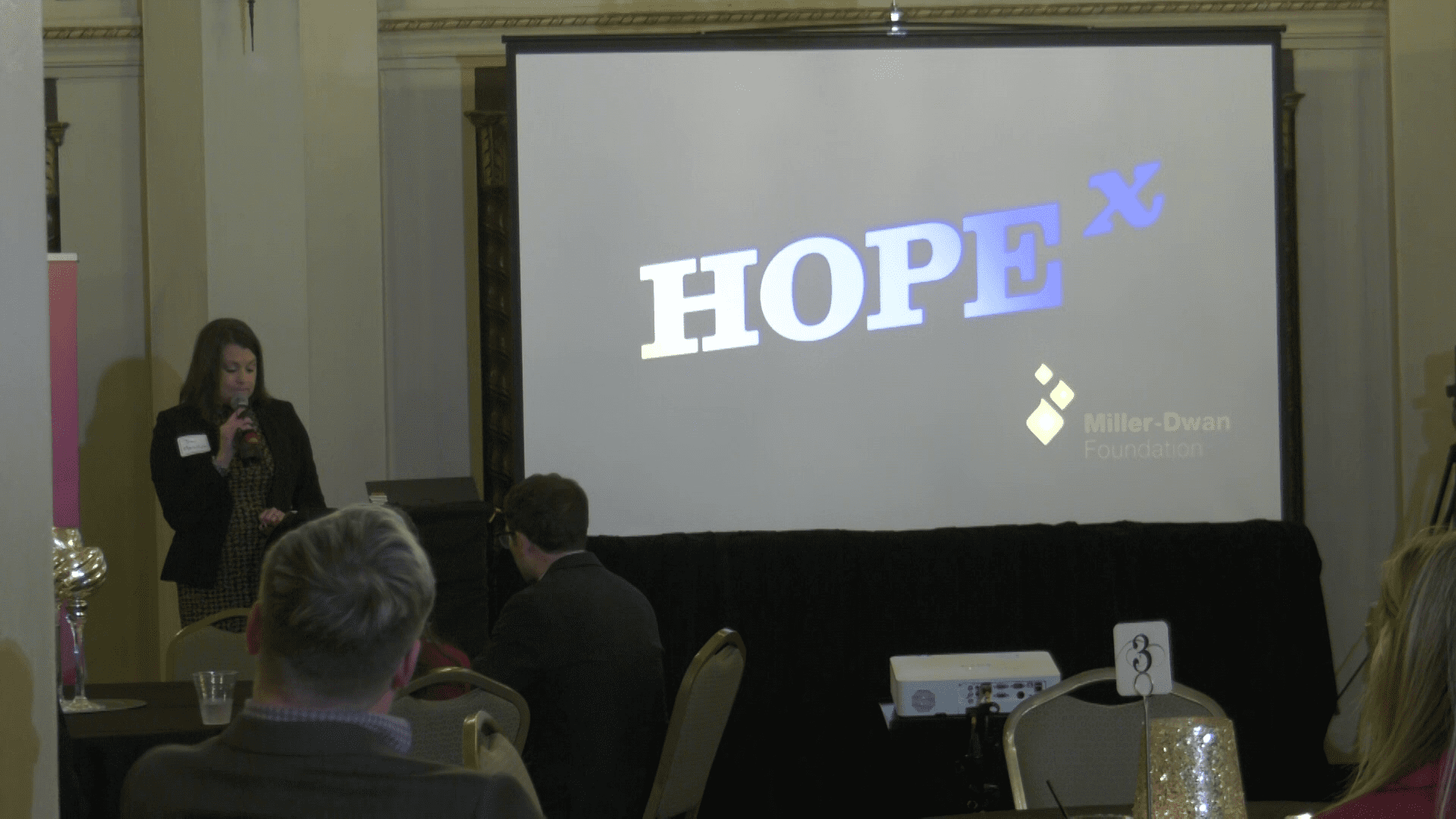Miller-Dwan Foundation launches new mental health initiative
On Thursday, the Miller-Dwan Foundation held a press and media event at the Greysolon Plaza in Duluth to formally launch Phase 1 of their HopeX initiative. HopeX, short for Hope Multiplied, is the foundation’s response to eliminating the mental health crisis in our region.
“Miller-Dwan and community members are charting a new path for mental health care in the United States,” explained Dr. Adam Brown from the New School for Social Research. “At a moment when so many of us are feeling disconnected and lonely and not recognized, here comes Hope X, a fearless initiative that seeks to develop new models and new strategies around mental health care. I can tell you that the rest of the country is going to be taking notice.”
Phase 1 will be called Problem Management Plus, or PM+. Using a program developed and tested by the World Health Organization, Phase 1 will expand the mental health workforce in our communities.
“It’s an initiative focused on establishing coaching and navigation and solutions for folks in low and middle income communities, centered around establishing education, relating to mental health and things like mental hygiene, which involve things that you can do on a daily basis to manage your mental health,” said Zak Williams, mental health advocate and son of actor Robin Williams. “It couldn’t come at a better time. And for me, community support and peer to peer support initiatives are absolutely essential in terms of addressing the mental health epidemic.”
The plan is to start by bringing in twenty people from a variety of cultures and groups and training them to assist people with mild depression, anxiety, and stress. As those people build skills and proficiency, they will train more people who can then train more people in a snowball effect. The Miller-Dwan Foundation says it will change mental health in our region one group of committed people at a time.

HopeX is Miller-Dwan Foundation's revolutionary response to eliminating the mental health crisis in our region (WDIO).
“The key consideration is when you’re feeling dysregulated or you’re about to enter a crisis, working with people with similar lived experience and backgrounds is really supportive,” explained Williams. “You would want to first reach out to people in your community, then say, you know, health care practitioner in many situations and context. So the idea is bringing solutions closer to folks.”
Nine area stakeholder organizations are playing key roles in selecting lay people from identified communities and integrating PM+ throughout the Twin Ports. Stakeholder organizations include City of Duluth Human Rights Commission, St. Louis County Public Health and Human Services, TransNorthland, Transgenda, YMCA, PAVSA, AICHO, Polinsky Medical Rehabilitation Center, and indiGO. According to the Miller-Dwan Foundation, many of these organizations serve marginalized and underserved populations and are those more affected by the mental health impacts of the COVID-19 pandemic.
“We know that mental health issues are skyrocketing for youth and things like suicide continue to be among the leading causes of mortality throughout the world,” said Brown. “While mental health concerns are familiar to just about every community, we also know that they are disproportionately hitting some of these communities who’ve been historically marginalized, folks who are impacted by displacement, economic uncertainty, oppression and other forms of marginalization.”
Among those present at Thursday’s event was Aleana (Ana) Kruger. Kruger is the interim board chair for TransNorthland as well as the CEO and Co-Host of the podcast Transgenda.
“They brought us in specifically to talk about the trans experience and how that community, the trans community has really been affected by the COVID pandemic and ultimately mental health inaccess in general,” said Kruger. “A lot of what’s the experience of trans people is is needing to see a psychiatrist. We need to see psychologists, therapists to even get care that is necessary for them to survive. And so I’m very happy and privileged to be able to be in this room and being able to talk with everyone from the New School X Initiative and the Miller Foundation and George W University to talk about gender and how it plays a huge role in the mental health care.”
Kruger and other stakeholders were given time to socialize amongst each other as well as learn more about Problem Management Plus. She is excited for the program because it will increase access to mental health care.
“I have seen personally and what I have experienced personally is a major in access of therapists and other mental health professionals, not just in the trans community, but overall,” explained Kruger. “You know, I have a lot of people in my life who need to see a therapist to need to see a mental health professional and do not have the access to either because of cost or because of time or because of the fact that there are not enough counselors for every single person in Duluth and Superior.